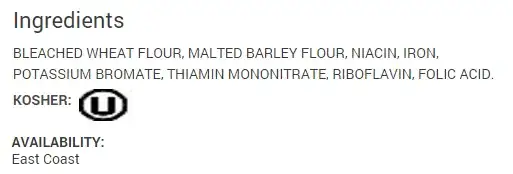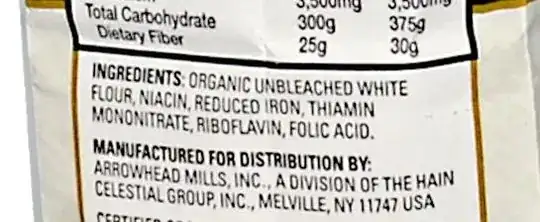In another answer, I learned that some flour is not vegan because it may have been bleached with bone char.
When I'm shopping, what do I need to look for to ensure I'm getting vegan flour?
In another answer, I learned that some flour is not vegan because it may have been bleached with bone char.
When I'm shopping, what do I need to look for to ensure I'm getting vegan flour?
If you happen to live in a place that demands trace chemicals to be described in the label, look for known inorganic oxidants:

http://seaystanford.com/wp-content/uploads/2013/10/Screen-Shot-2013-07-28-at-3.57.44-PM.png
I couldn't find a picture because they are not mandatorily listed.
The reason why those agents are guaranteed to point to vegan flour is simple: they react strongly with organic matter. Adding animal products to the process would make them less effective and increase overall production costs.
If none of those agents are listed in a bleached flour, then it is likely to have been bleached by bone char, or a reductant chemical such as L-cysteine/L-cystine (produced from animal hair and feathers).
There is, however, a widely used inorganic oxidant that does not need to be listed in the package: oxygen (or, sometimes, just air). Regular air will whiten flour just as well, it just takes a lot longer to reach the right white. Flour whitened by either air or O2 are considered unbleached for legal purposes.

Alternatively, you can use non-whitened varieties of flour, such as whole wheat flour.
OBS: all of the above inorganic chemicals are known carcinogens, and, as such, might have been banned from your country.